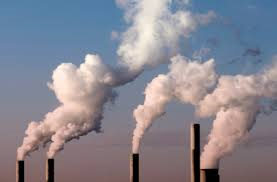Clean air – What’s the big deal?
Pollution from refineries and chemical plants makes people sick, from serious trouble breathing, to heart attacks and even premature death. But, state regulators, like the TCEQ (Texas Commission on Environmental Quality), largely look the other way even when we know for a fact that big polluters are breaking the law.

Clean Air – What’s the Big Deal?
Pollution from refineries and chemical plants makes people sick, from serious trouble breathing, to heart attacks and even premature death. But, state regulators, like the TCEQ (Texas Commission on Environmental Quality), largely look the other way even when we know for a fact that big polluters are breaking the law.
Don’t believe me? ExxonMobil broke clean air laws at its Baytown oil refinery and chemical plant near Houston more than 4,000 times over five years—compounding Texas’ pollution problems and endangering the health of nearby residents.
You can spend an afternoon perusing TCEQ’s Air Emission Events Reports Database. From August 1st to August 6th you’ll find 35 distinct, mostly unplanned and unpermitted, instances of polluting facilities all across Texas. For example, one incident at the Midkiff Gas Plant in Reagan County, near Midland, released an industry estimated 9,074.64 lbs. of NOx, a key component in the formation of ozone, and nearly 20,000 lbs. of Propane.
It’s clear we need to take firm action to force Texas’ biggest polluters to clean up their act, but we’re going to need more than wrist slapping, at best, and total denial, at worst, from TCEQ.
Thankfully the EPA has proposed a series of rules that will, in combination, be a significant step forward in protecting clean air in Texas. The newly finalized Clean Power Plan, a historic and important step which will reduce global warming pollution from power plants, the Cross-State Air Pollution Rule, which requires the reduction of power plant emissions that contribute to ozone pollution, the Regional Haze rule, which monitors visibility in national parks and wilderness areas and the new Ozone rules, which will lower the acceptable level of ozone we breathe will benefit public health especially for children, the elderly, and those with diseases that are impacted by air quality such as asthma.
Now is the time for elected leaders in Texas to make a critical decision: will they support the EPA and side with the public, who needs clean air to live healthy and productive lives, or will they be a barrier to clean air and side with big polluters, who seek to profit from pollution that threatens our health, our environment and our economy.

